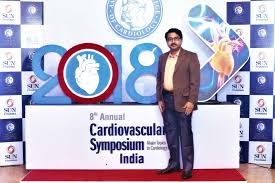Who
is a Cardiologist?
A
cardiologist is a doctor with special skill & training in finding, treating
and preventing diseases of blood vessels and heart. Heart Specialists in Kolkata receives
extensive education and training including 4 years at the medical school and
then 3 years training in internal medicine. After which they spend another 3
years in specialized training.
When
Should You See a Heart specialist in Kolkata?
If
a general physician feels that you have something significant with your heart
then you should take the help of a cardiologist. Symptoms like breathlessness,
chest pains, and dizzy spells are the signs of a poor heart. Sometimes the
murmurs of heart, often known as ECG, needs an evaluation by a cardiologist.
Cardiologists also counsel patients about the risks and prevention of heart
diseases. Cardiologists are involved in the treatment of heart attacks, severe
heart rhythm failures, and heart failures. Their opinion and skills matter the
most whenever a decision regarding cardiac catheterization, balloon
angioplasty, and heart surgery is required.
What
Do Cardiologists Do?
When
cardiologists meet a patient, they would first review the medical history of
the patient. Then they perform a physical examination which often includes
blood pressure, heart, lungs, weight, and blood vessels. Some issues might be
diagnosed by the general physician already. Additional tests such as ECG, blood
test, X-ray might be performed based on the results. Cardiologists also
recommend lifestyle changes or medicines based on the requirement of each
patient.
What
Test Might Be Performed?
- Ambulatory
ECG: It is a recording of during a course of activities to look for abnormal heart rhythm.
- Exercise
Test: A study to measure the heart’s limitations and performance
- Cardiac
Catheterization: A test that uses a small tube that is placed close to the heart to take pictures and see how the heart working.
- Echocardiogram:
It is a sound wave picture to look at the structure and functioning of the
heart.
What
Question Should You Ask Your Cardiologists?
Before
choosing the Best Cardiologist in
Kolkata, you should ask questions to him/her. If you have an angiogram
then you should see the pictures and also ask your cardiologist to explain what
each picture means.


